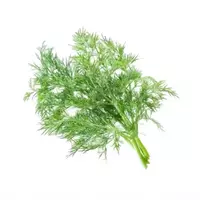Fennel

Dill, whose official name sounds like "odorous dill" or "garden dill, " first appeared on the eastern coast of the Mediterranean Sea. Another, lesser-known name for this plant is fennel. In ancient Greece, dill was usually associated with the name of Dionysus - the god of celebration and wine.
Dill is thought to have magical properties. Dill is also known as the most powerful aphrodisiac that increases love drive. In the 16th century, the spread of dill began in Europe. And in Russia they have known dill since the 10th century.
The use of dill is universal, it is used for food, medical and cosmetic purposes. Dill is indispensable in pickles and marinades, as seasonings for all kinds of fish, meat, mushroom dishes, for snacks, salads and vinaigrettes. Dill meat gives a subtle unique aroma. Dill is often added to fermented milk products, to pie fillings. Surprisingly, dill is present in many fragrance confections.
Benefits of dill
The properties of dill are not in doubt. It excites appetite, improves digestion, reduces cramps, has an exhilarating and diuretic effect, among other things, fennel is useful for women during breastfeeding, as it enhances the lactation process. All these useful properties of dill are due to its richest composition.
Fennel contains a large amount of vitamin C, as well as fiber, folic acid, potassium. Dill is rich in invaluable antioxidants, it has an anti-inflammatory effect, having an extremely positive effect on the oral cavity. The calorie content of dill is 40 kcal. 100 gr. with complete absence of cholesterol. Dill is recommended for people with cancer, because it is able to reduce the negative consequences of chemotherapy, in particular, restores the work of the gastrointestinal tract. Dill fumes alleviate pulmonary diseases such as asthma, bronchitis, etc.
The benefits of dill also in its ability to have an invigorating effect and at the same time a calming effect, allows you to relieve mental tension and restore mental balance in stressful situations. Dill helps relax the body, improves memory.
The cosmetic effect of dill is also beyond question. It has long been used as an excellent means of relieving swelling around the eyes. Dill juice for external use relieves eye fatigue. Dill is effective in treating acne, soothing the skin after irritation while shaving. In addition, dill reduces allergic reactions that occur on the skin, eliminates itching. These days, dill is added to many creams and cosmetics. Fennel strengthens hair roots, preventing them from falling out. Thus, the benefits of dill are enormous, this is a unique plant in all its respects.
Harm to dill
The harm of dill, or rather, contraindications to its excessive use, can be expressed in allergic reactions to this product. Also, dill is contraindicated in people with reduced pressure, while it can cause weakness and even fainting.
dill 40 kCal
Energy value of dill (Ratio of proteins, fats, carbohydrates - ju):
Proteins: 2.5 g (~ 10 kCal)
Fats: 0.5 g (~ 5 kCal)
Carbohydrates: 6.3g (~ 25kCal)
Energy ratio (bj | y): 25% | 11% | 63%
 Español
Español Français
Français Português
Português Русский
Русский 简体中文
简体中文 繁體中文
繁體中文 日本語
日本語 한국어
한국어 العربية
العربية Türkçe
Türkçe Қазақ
Қазақ Deutsch
Deutsch Italiano
Italiano Українська
Українська
